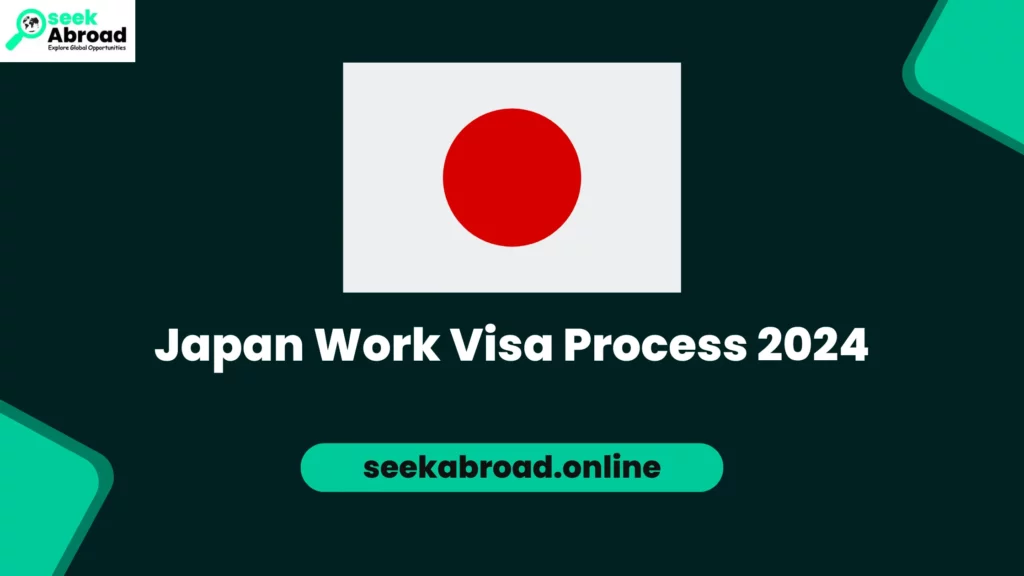Japan Work Visa Process 2024
Before delving into the specifics of the Japan work visa process for 2024, it’s essential to understand the fundamentals of a work visa. A work visa grants non-Japanese citizens the legal right to work in Japan for a specified period. The type of work visa you apply for depends on your intended profession and qualifications.
Types of Work Visas in Japan
Japan offers several types of work visas tailored to different professions and skill levels. Here are three of the most common ones:
Specified Skilled Worker Visa
The Specified Skilled Worker Visa is designed for individuals with specialized skills in industries facing labor shortages in Japan. It’s a great option for those looking to work in fields like healthcare, construction, hospitality, and agriculture.
Engineer, Specialist in Humanities/International Services Visa
This visa category covers a wide range of professions, including engineers, researchers, educators, and those working in the humanities and international services sectors. It’s suitable for professionals with advanced degrees and specific expertise.
Technical Intern Training Visa
The Technical Intern Training Visa is aimed at individuals seeking hands-on training in Japanese companies. It’s a fantastic opportunity for skill development and gaining practical experience.
Eligibility Criteria
Each visa category has its own set of eligibility criteria. Let’s take a brief look at what’s required for each of the three main visa types:
Specified Skilled Worker Visa
To qualify for this visa, you must meet certain skill and experience requirements in your chosen industry. You may also need to pass a skills assessment test.
Engineer, Specialist in Humanities/International Services Visa
This visa typically requires a relevant bachelor’s degree or equivalent qualifications. Experience in your field of expertise is also beneficial.
Technical Intern Training Visa
Eligibility for this visa is based on your intent to undergo technical training in Japan. You’ll need a sponsoring organization and a training plan.
The Application Process
Once you’ve determined the right visa category for your situation, it’s time to initiate the application process. Let’s explore the general steps involved:
Specified Skilled Worker Visa
- Find a job offer in an eligible industry.
- Pass the skills assessment test.
- Secure a Certificate of Eligibility.
- Submit your visa application.
Engineer, Specialist in Humanities/International Services Visa
- Obtain a job offer.
- Prepare necessary documents, including your degree and experience certificates.
- Submit your visa application.
Technical Intern Training Visa
- Find a sponsoring organization.
- Develop a training plan.
- Apply for a Certificate of Eligibility.
- Submit your visa application.
Document Requirements
Regardless of the visa type, you’ll need to gather essential documents, such as your passport, academic credentials, and proof of employment or training arrangements. Detailed documentation is crucial to a successful application.
Submitting Your Application
Once you have all the necessary documents, submit your visa application to the nearest Japanese embassy or consulate. It’s advisable to double-check the specific requirements and procedures with the respective consulate in your country.
Processing Time
The processing time for a Japan work visa can vary depending on your home country, the type of visa, and the time of year. On average, it takes several weeks to a few months to receive a decision.
Interview and Assessment
Some visa categories may require you to attend an interview or skills assessment. This step is crucial for evaluating your qualifications and ensuring you meet the visa criteria.
Receiving Your Visa
Once your application is approved, you’ll receive a visa sticker in your passport. Congratulations, you’re now one step closer to working in Japan!
Post-arrival Procedures
Upon arriving in Japan, you’ll need to complete various post-arrival procedures, such as registering your residence and obtaining a residence card.
Working in Japan
Working in Japan can be an enriching experience, but it also comes with its unique challenges. It’s essential to adapt to the local work culture and norms.
Extending Your Visa
If you wish to extend your stay in Japan, you can apply for a visa extension before your current visa expires. The process is similar to the initial application.
Common Challenges
Adjusting to life and work in a new country can be challenging. Language barriers, cultural differences, and homesickness are common issues expatriates may face.
Conclusion
Obtaining a Japan work visa in 2024 opens doors to a world of opportunities. By following the outlined process and meeting the necessary requirements, you can fulfill your dream of working in this captivating country.
Frequently Asked Questions (FAQs)
Can I apply for a work visa in Japan without a job offer?
In most cases, you’ll need a job offer to apply for a work visa in Japan. However, there are exceptions for certain visa categories.
How long can I stay in Japan on a work visa?
The duration of your stay depends on the type of work visa and your specific circumstances. It can range from one to several years.
Can I bring my family with me on a work visa to Japan?
Some visa categories allow family members to accompany you, but they may have separate visa requirements.







